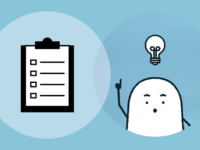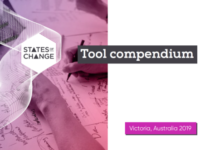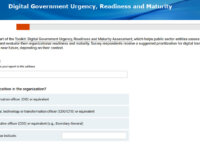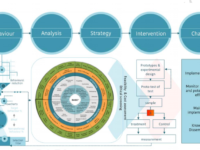Toolkit Navigator
A compendium of toolkits for public sector innovation and transformation, curated by OPSI and our partners around the world

This resource provides South Australian Government organisations with guidance on the development and format of their digital strategies, which they distinguish separately from an information and communications technology (ICT) strategy. The toolkit contains guidance on the development and format of digital strategies, a digital maturity assessment tool, a digital transformation prioritisation tool, a digital strategy template, and an implementation plan template.
This online interactive playbook is intended for teams to work better together in order to get things done. It is organised into Health Monitor (checks and activities for building team health), individual plays (filterable standalone activities), and game plans (series of plays for common use cases). The playbook organises the materials by project, service, and leadership team type, provides detailed instructions on how to run the plays and offers downloads of materials. Since many plays are…
This resource is focused on collaboration around designs for solving product problems, specifically on the topics of trust, transparency and control concerning the use of personal data. The methodology used was inspired by those from the Stanford d.school and IDEO. The toolkit is split into four sections – Plan, Discover, Ideate and Prototype.
The resource contains over 20 guided activities and supporting materials (including downloadable worksheets) covering materials for planning and running…
This is a free, self-paced, 3-5 hour course designed to build your capacity for bringing a design approach to complex problems. The course is intended to: develop a design mindset, define a problem, and dig deep and clarify problems. The publisher also includes downloadable toolkits as part of the course.
The resource was developed for IFRC and National Societies to develop their literacy around data, but it could easily be applied to other organisations. It aims to promote responsible data use and develop data readiness. It has been tailored based on these audiences:
The Data Curious, who needs an ‘on ramp’ to learn and be exposed to the data basics.
The Data Advocate, who sees relevance and and wants to improve their skills and/or offer support.
The Data Active, who are motivated to…
This is a tool compendium created specifically for participants of a programme in Victoria, Australia. It is a PDF containing an organised selection of the key tools used during the sessions.
It is divided into two sections:
1. ‘tools for experimental problem solving’ and aligns with both the publisher's Experimental Continuum and Six Principles for exploring the unobvious.
2. ‘tools for setting the conditions’, which looks beyond the project challenge to other factors that can impede…
The "Toolkit: Digital Government Urgency, Readiness and Maturity Assessment" helps public sector entities assess urgency for digital transformation and evaluate their organizational readiness and maturity. Respondents of the freely accessible survey receive a suggested prioritization for digital transformation initiatives in the near future, depending on their context, as well as indicative digital maturity levels. An email address is required in order to receive the report.
The resource provides support for individuals and organizations wishing to publish open government data. Some guidance may be specific to the Swiss context. It is designed as a wiki: contributions from organizations and individuals that have experience with open data are welcomed. The resource is organised into stages: identify, prepare, publish, and support. A Github repository of the website's code is also available.
The goal of this resource is to elicit conversation, encourage risk evaluation as a team, and catalyze proactive mitigation strategy planning around algorithm use in the public sector. It includes assessments and worksheets for assessing algorithm risk and managing algorithm risk. The publishers assume users have an understanding of their data and a basic understanding of algorithms.
BASIC (Behaviour, Analysis, Strategies, Intervention, and Change) is an overarching framework for applying behavioural insights to public policy from the beginning to the end of the policy cycle. It is built on five stages that guides the application of behavioural insights and is a repository of best practices, proof of concepts and methodological standards for behavioural insights practitioners and policymakers who have become interested in applying behavioural insights to public policy.
The…










